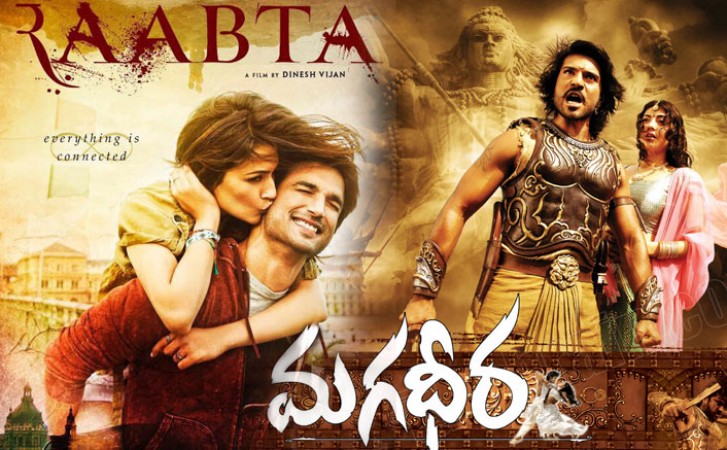
Allegations of plagiarism are nothing new in the world of film. But some instances stand out because of how complicated they are and how much of an impact they have on the sector. The 2009 Telugu blockbuster "Magadheera" and the 2017 Bollywood movie "Raabta" are two examples. To the makers of "Raabta," "Magadheera" producer Allu Arvind sent a legal notice alleging plagiarism. Due to the involvement of two popular films from distinct industries and the intense legal conflict that followed, this dispute garnered a lot of media attention.
S.S. Rajamouli's epic fantasy film "Magadheera," in Telugu, was a huge hit when it was released in 2009. The movie, which starred Ram Charan and Kajal Aggarwal, had a distinctive plot that combined elements of historical drama and reincarnation. Producer of "Magadheera," Allu Arvind, claimed that "Raabta," a Bollywood film released in 2017, had blatantly plagiarised significant portions of his film.
The glaring plot similarities between the two films served as the basis for the plagiarism accusations. Both films featured the idea of reincarnation and time-defying love, with the main characters in each being reborn to carry on their respective love stories. Arvind claimed that "Raabta" had plagiarised the main idea, the storyline, and even particular scenes from "Magadheera." Concerns over intellectual property rights and artistic integrity in the Indian film industry were raised by this controversy.
Allu Arvind filed a lawsuit against the "Raabta" producers in response to the plagiarism claims. He submitted a legal notice demanding that the Bollywood movie's creators acknowledge the plagiarism and pay fair compensation. This signalled the start of a contentious legal dispute that would later grab the public's and the entertainment industry's attention.
The "Raabta" producers delayed responding to the accusations. Instead, they presented Allu Arvind with a counterproposal. They proposed showing the movie to him and giving him a chance to talk about any apparent parallels in a private meeting. In addition, as a gesture of goodwill, they agreed to deposit a certain sum in court.
In an unexpected turn of events, Allu Arvind rejected the "Raabta" producers' counterproposal. He remained steadfast in his conviction that his movie had been copied and that there was no denying the similarities between the two movies. The fact that he rejected the offer showed how determined he was to take legal action to defend his intellectual property rights.
The legal dispute got worse when Allu Arvind rejected the proposed settlement. The case became a focal point for discussions on copyright infringement within the Indian film industry as both parties engaged in legal proceedings. The main issues in the legal dispute were whether or not "Raabta" had actually copied significant parts of "Magadheera," and if so, how much.
It became increasingly obvious during the court battle that the case would not be settled quickly. These cases are frequently drawn out, and navigating the complexities of intellectual property rights can be difficult. The courts would ultimately resolve this conflict based on the evidence offered and the legal arguments advanced by both parties.
The "Magadheera" and "Raabta" plagiarism scandals brought to light the value of protecting intellectual property in the entertainment sector. Allu Arvind showed his dedication to protecting his artistic creation by sending a legal notice to the "Raabta" producers and subsequently rejecting their settlement offer. This case also raised concerns about the filmmakers' obligation to make sure that their work is unique and not a replica of another person's intellectual property.
The ongoing legal battle between the parties served as a reminder that intellectual property disputes in the film industry can have serious repercussions, including financial compensation and reputational harm. The "Magadheera" vs. "Raabta" controversy serves as a sobering lesson for filmmakers, highlighting the importance of originality and observance of intellectual property rights throughout the creative process. The extent of the plagiarism would ultimately be decided by the courts, and their judgement would have a long-lasting effect on how the Indian film industry protected its intellectual property.
Box Office Collections in India for October 5: Jawan, Fukrey 3, Chandramukhi 2, and More
Karan Johar's Bold Break from the 'K' Convention
Shah Rukh Khan's Iconic Performance in 'My Name is Khan' Takes Center Stage in San Francisco